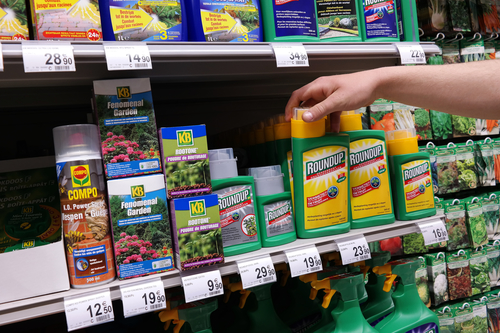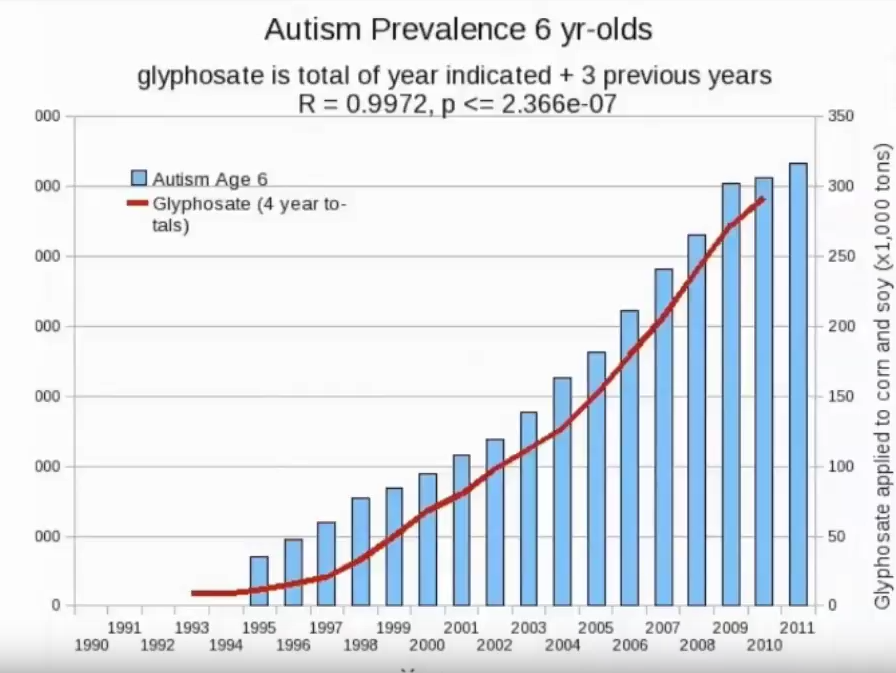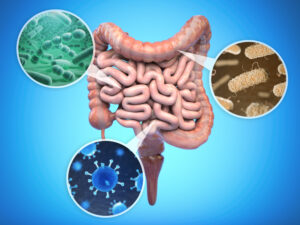4 Myths that are Affecting Your Childs Health (Part 1)
Article At A Glance:
• Knowledge about the gut-brain connection (as it relates to autism) is still relatively new to many people.
• Here are some clarifications of misconceptions there are about how food and supplementation can be used to manage autism.
When frustrated parents first stumble upon this new information about the gut-brain connection and how food and supplementation really can be used to effectively manage their child’s autism, many are skeptical. They have likely tried different methods to help their child without much success and wonder if this is yet another strategy that won’t work for them.
I always invite questions, as it was my own questions that ultimately led me to research and discover a newer, more holistic way of effectively treating autism, and I thought it would be helpful to go over some common myths and misconceptions I hear about this new method:
MYTH: If this was legitimate, it would be more well-known.
Some question why the information on this site hasn’t saturated the market yet. If it actually worked, more people would know about it, right?
FACT: Misinformation is the Norm.
I’ve written previously about how mainstream medicine has many times gotten things wrong even in the recent past. Advice on weight loss, best exercises practices, and sound dietary advice have all radically changed in just a few years. And for new knowledge to go mainstream can take years of expensive, clinical trials. Public opinion about deep-seated beliefs can take a very long time to sway, but I am confident that eventually, the importance of nutrition and supplementation in managing autism will be common knowledge.
MYTH: The Government will protect us from harmful chemicals in our food.
It is the job of consumer protection agencies and groups to ensure that chemicals in our food that could be damaging to our health are kept off the shelves.

FACT: In the United States, food chemicals are “innocent until proven guilty.”
In America, the food industry is largely unregulated, and food manufacturers basically have free reign. To put into this into perspective, consider that there are roughly 80,000 chemicals used in household products (cosmetics, cleaning agents, and yes, food preservatives and toxins), while only about 200 have been tested for safety. In other words, there may be harmful toxins that we regularly encounter without fully understanding how they affect us. Once again, it will take years and millions of dollars to verify this, but it’s safe to say that government regulations are not sufficient to help keep us safe.
MYTH: “I grew up eating a certain way, and I’m fine.”
I’ve heard that claim that food and nutrition can’t be that important for children with autism because a parent grew up eating “normally” and didn’t develop any serious problems.
FACT: Things have changed drastically.
In the past few decades, the American diet and the level of food preservatives and dyes have changed dramatically to the point where it’s near impossible to compare your diet growing up with that of the average of a child.
Here’s one example of how modern food is different. The majority of American crops are treated with the herbicide “Round Up,” which has an active ingredient of Glyphosate. In just a little over twenty years, fifteen times as much Glyphosate is being used on corn. Sadly, Glyphosate consumption has a lot of negative effects on the body, and it makes sense that a child who already has a vulnerable system could be ever more compromised by these outrageous levels of it.
Glyphosate Levels & Autism Rates

Consider this graph showing the correlation between glyphosate levels and autism rates from the early 1990s until 2010. We know that correlation does not indicate causation, but the connection between the two is too strong to ignore and is certainly a cause for concern.
MYTH: Food & Supplementation don’t matter. Let kids be kids. There’s nothing we can do anyway.
This was what I was told by a doctor. He essentially told us to just “deal with it.” This seems to be the approach the mainstream medical community takes with autism.
FACT: Food and Supplementation matter more than ever before.
The truth is that what we put in our body affects nearly every aspect of our health. Food changes our hormones, gene expression, gut biome, etc. It drives our energy levels, susceptibility to infection, and greatly determines the likelihood of having a heart attack or stroke. Looking at how influential our diet is on our health, it is inconceivable to me that more people don’t take seriously the notion that food consumption would affect children with autism.
Stay tuned for Part 2 of this article where we’ll clear up more misunderstandings about the gut-brain connection and how food and supplementation can be effectively used to manage autism.
*This website is provided for informational purposes only and is not intended as a substitute for the advice provided by a healthcare professional.
References
- The Medical Community & Autism
- The Workout Debate: Experts Weigh in on Cardio vs. HIIT
- Getting Toxins Out of Household Products
- Are There Dangerous Dyes in Your Child’s Foods?
- How Toxic is the World’s Most Popular Herbicide?
- Trends in Glyphosate Herbicide Use in the US and Globally

A Revolutionary 5-1 Bio-Heal Probiotic
Helping Children Reach Their Full Potential
Click To Learn More
Join Our Community
Join the premier support group of parents, teachers, and caretakers dedicated to
Click To Learn More




